The first forum for newcomers to ML is co-located with NeurIPS, East Meeting Level 11,12, Vancouver Convention Center, Vancouver, BC, Canada, Monday, December 9th, 2019.
The Mentoring Breakfast is located in East Meeting Room, from 7am to 9am, Dec 9th. Register with thislink. There will be reception to distribute table numbers and stickers. Please be on time!
Spotlights in NeurIPS 2019
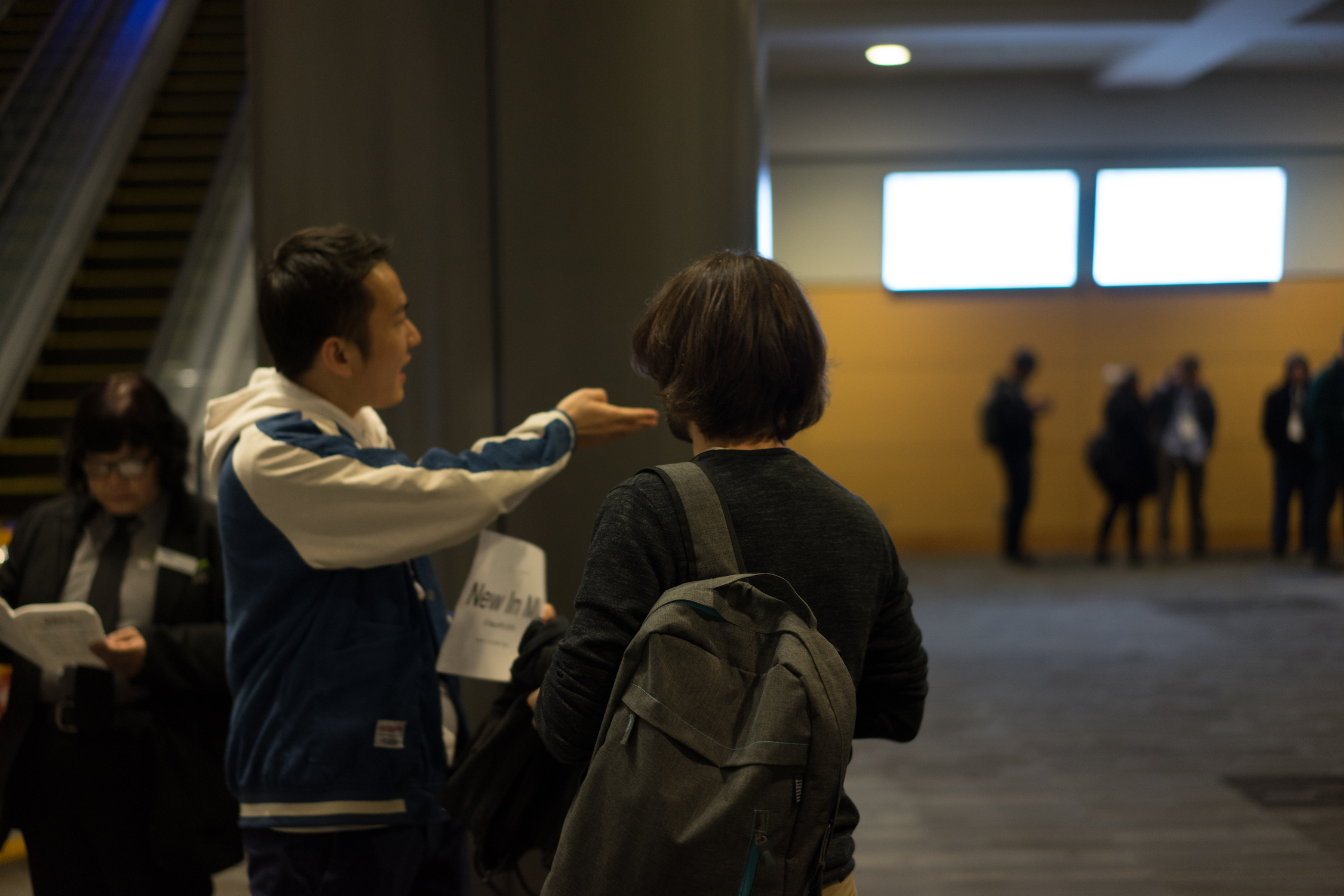
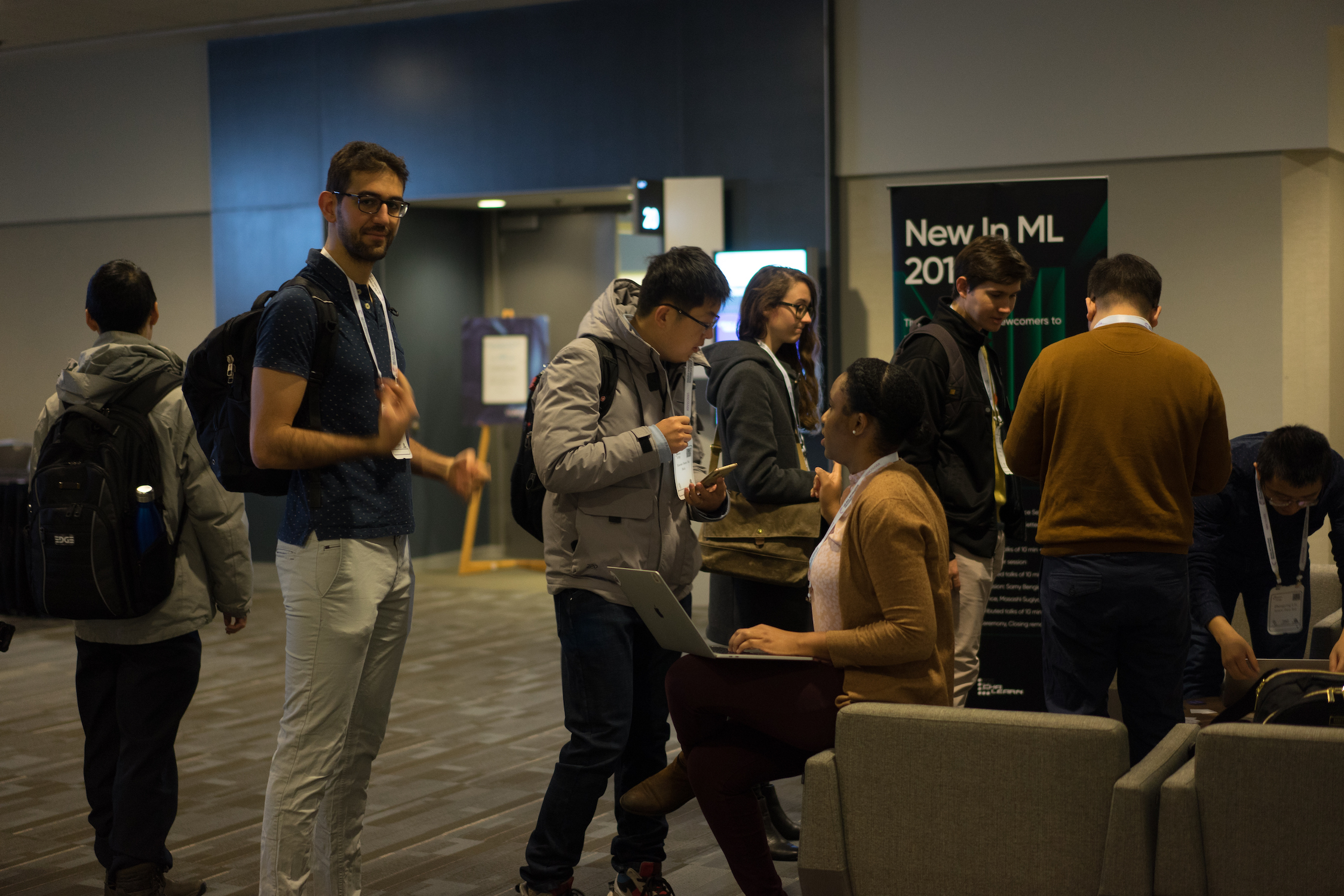
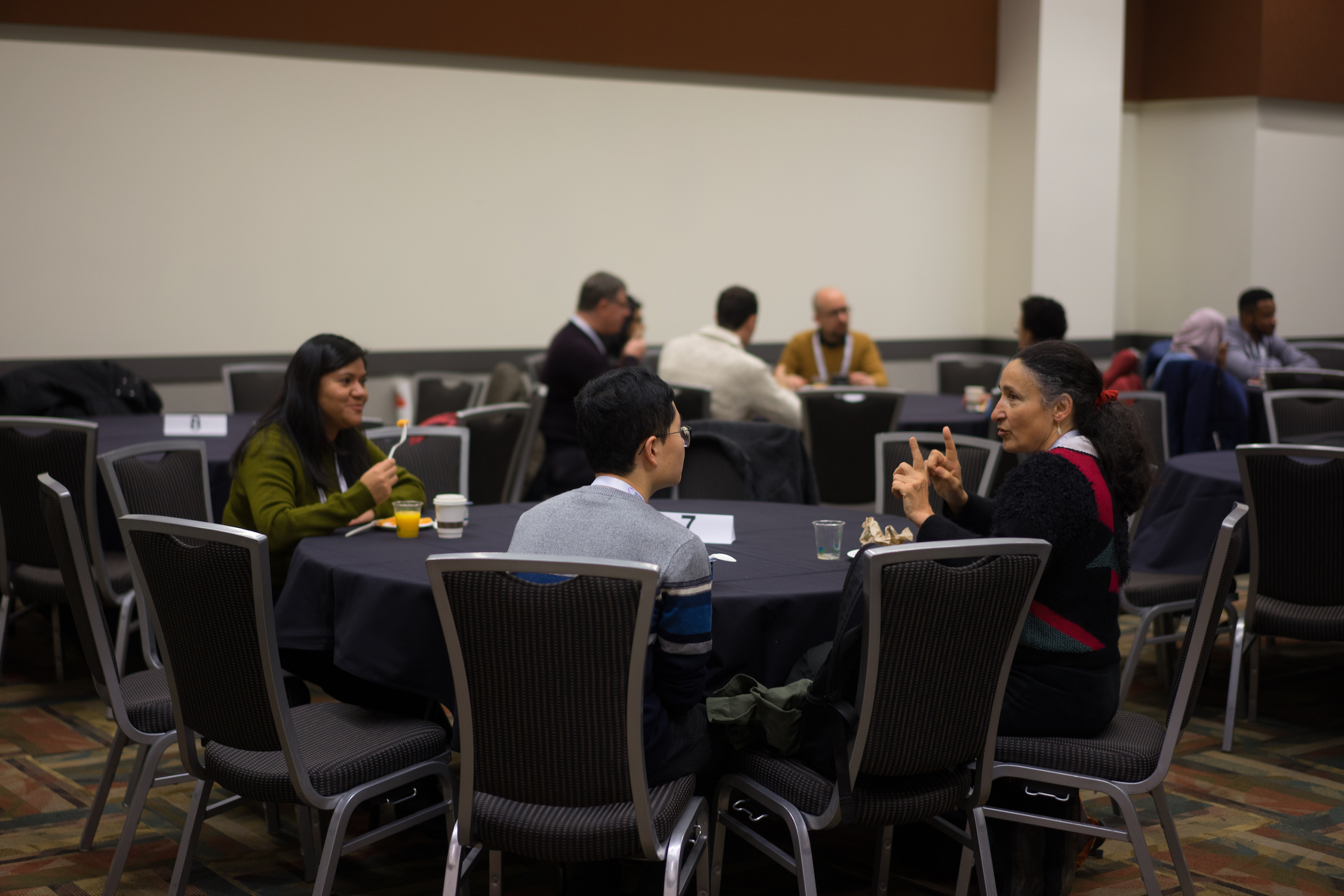
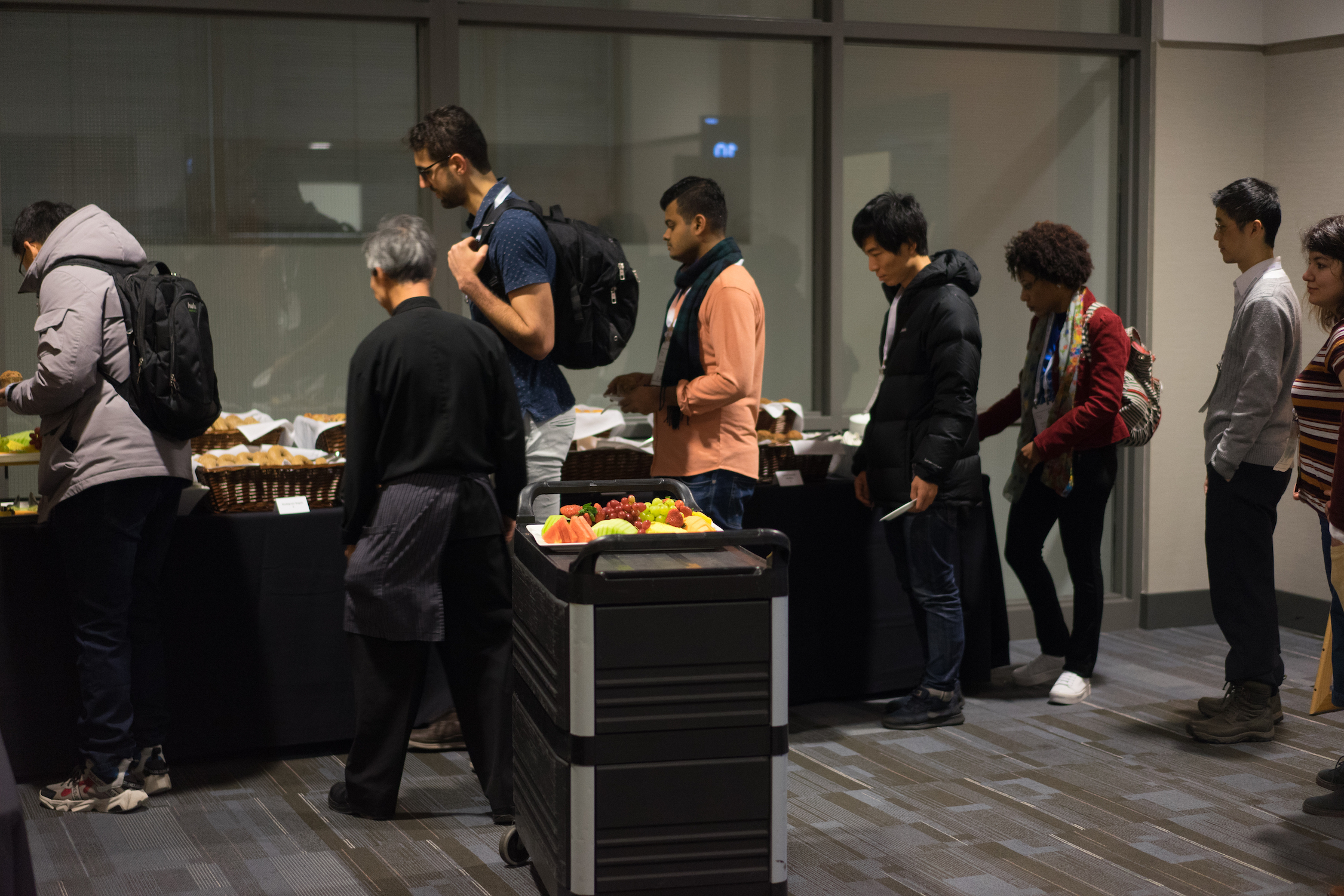
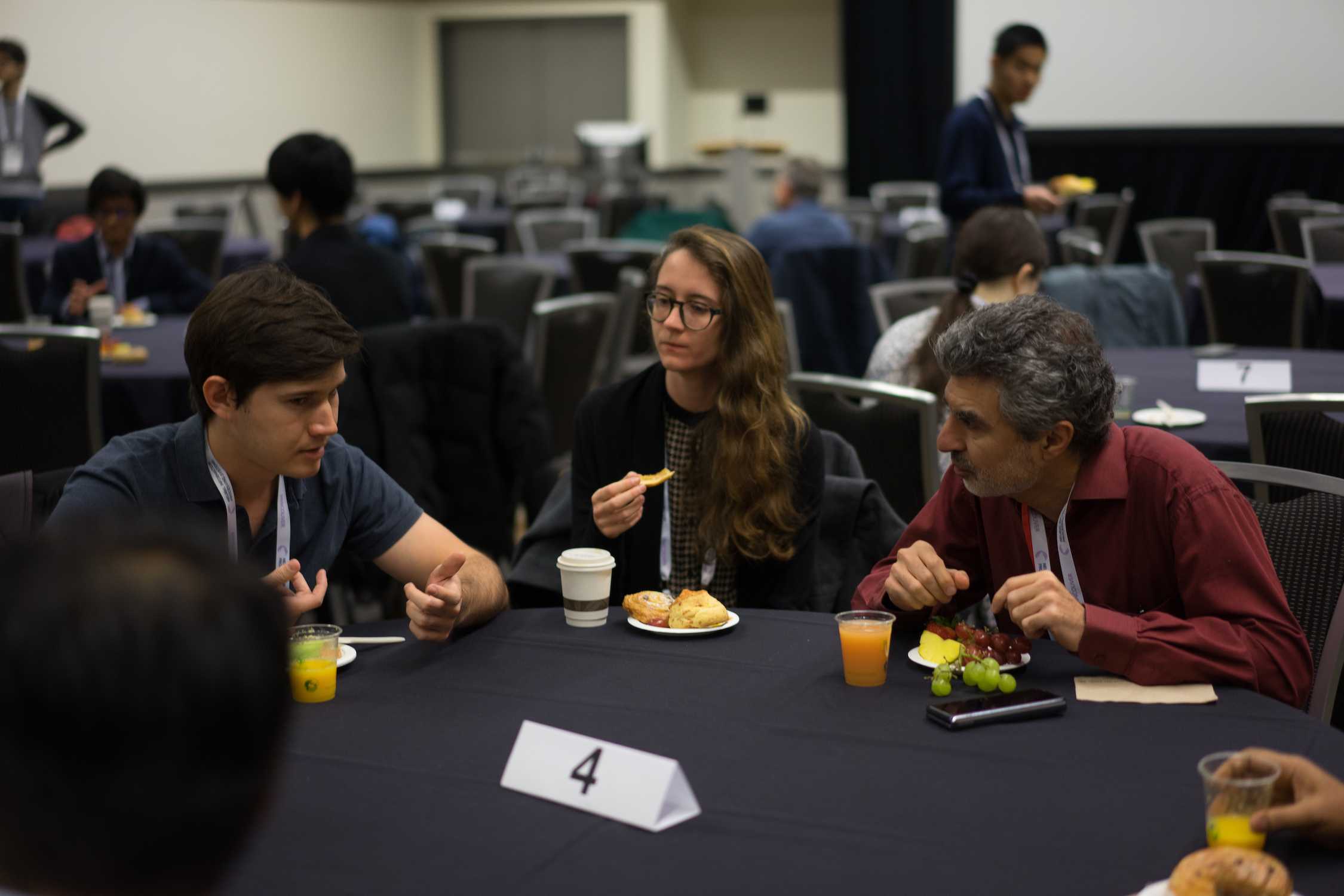
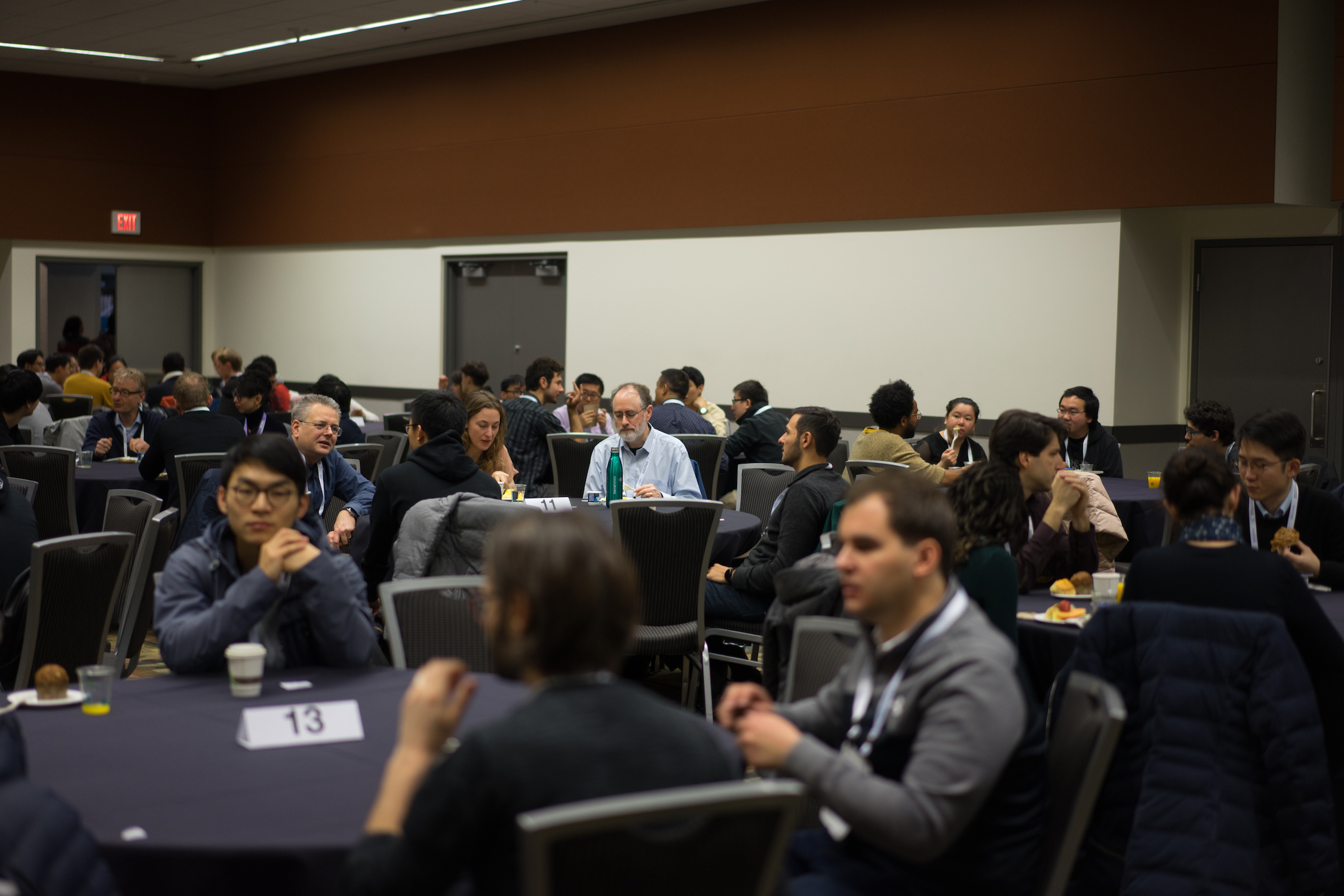
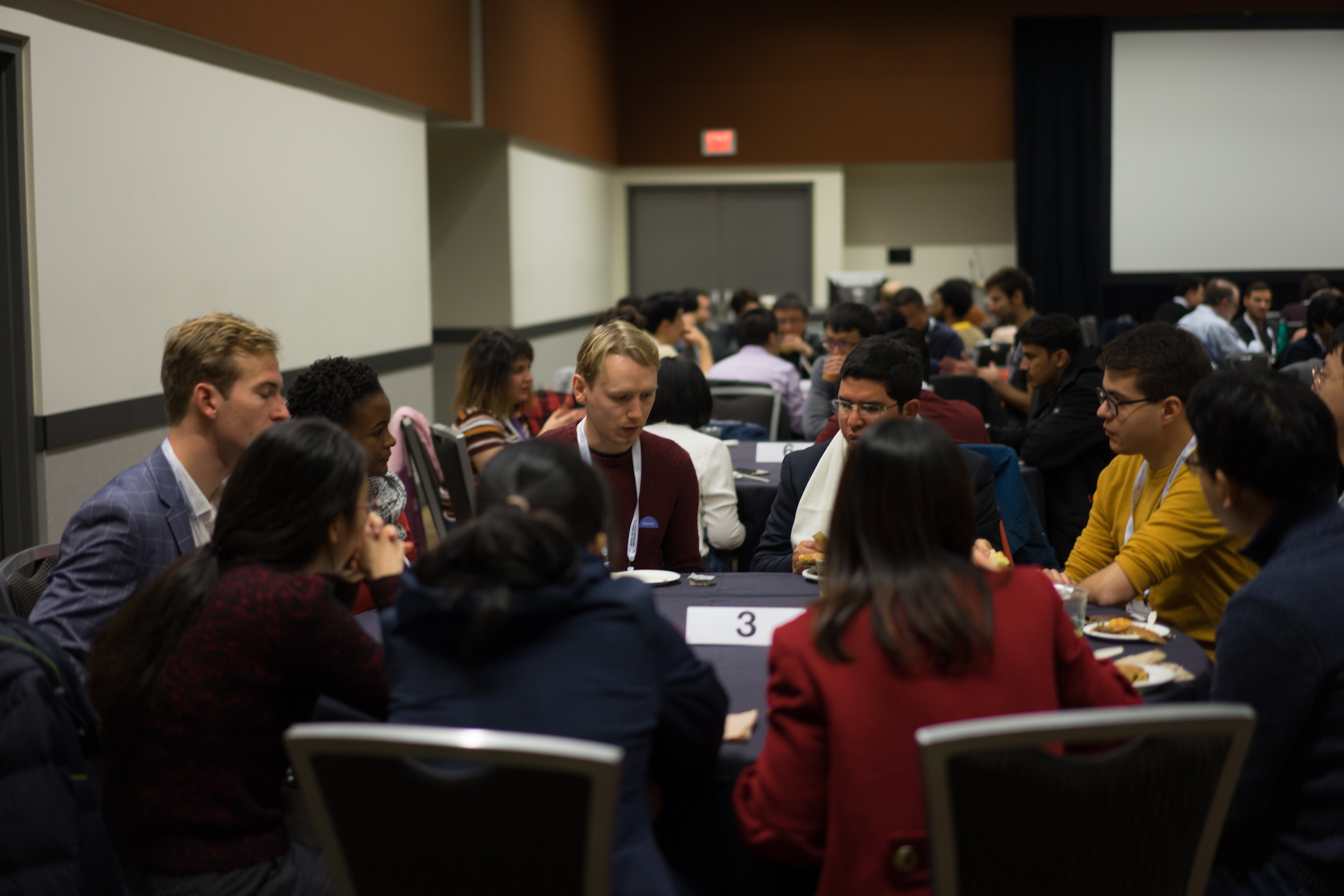
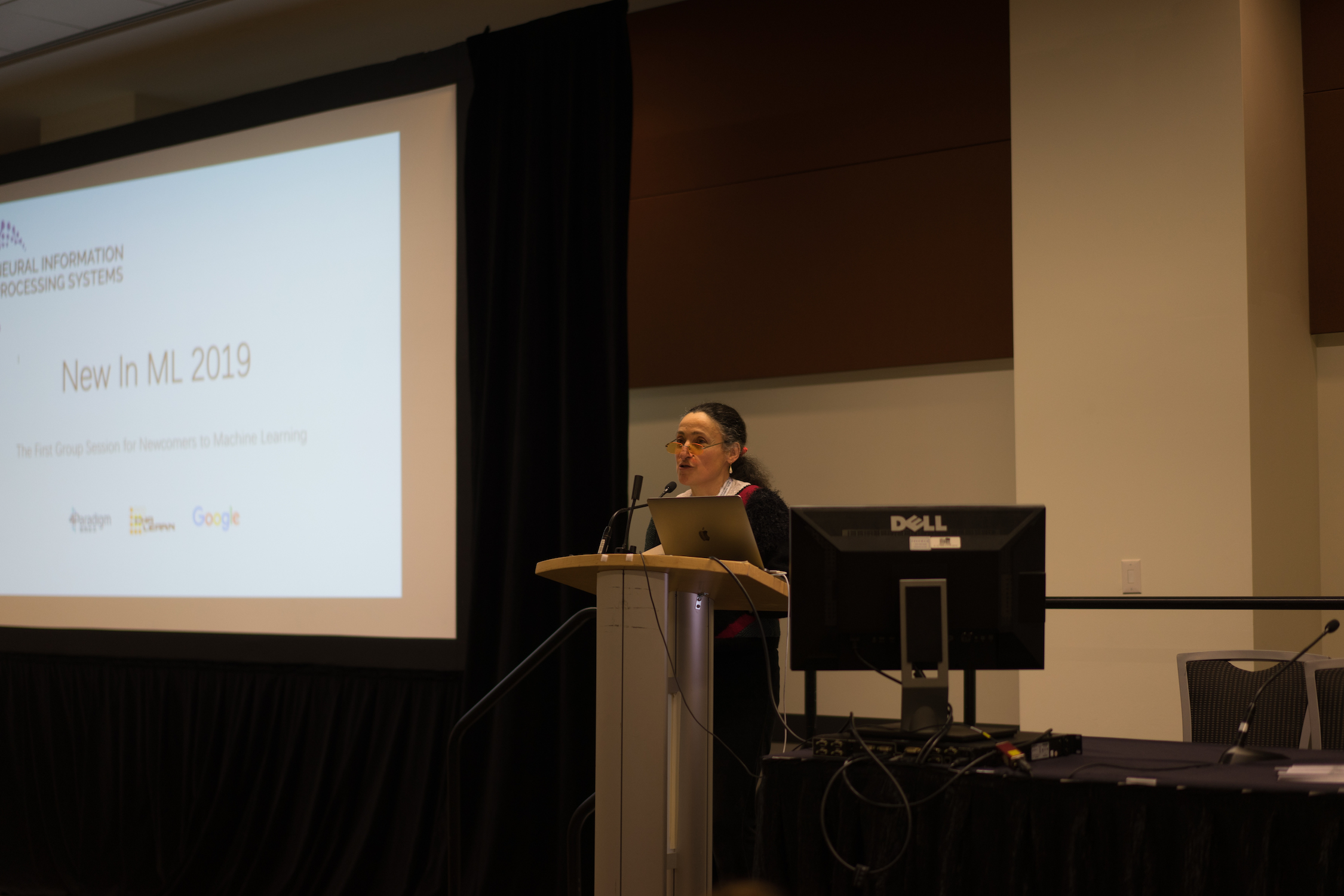
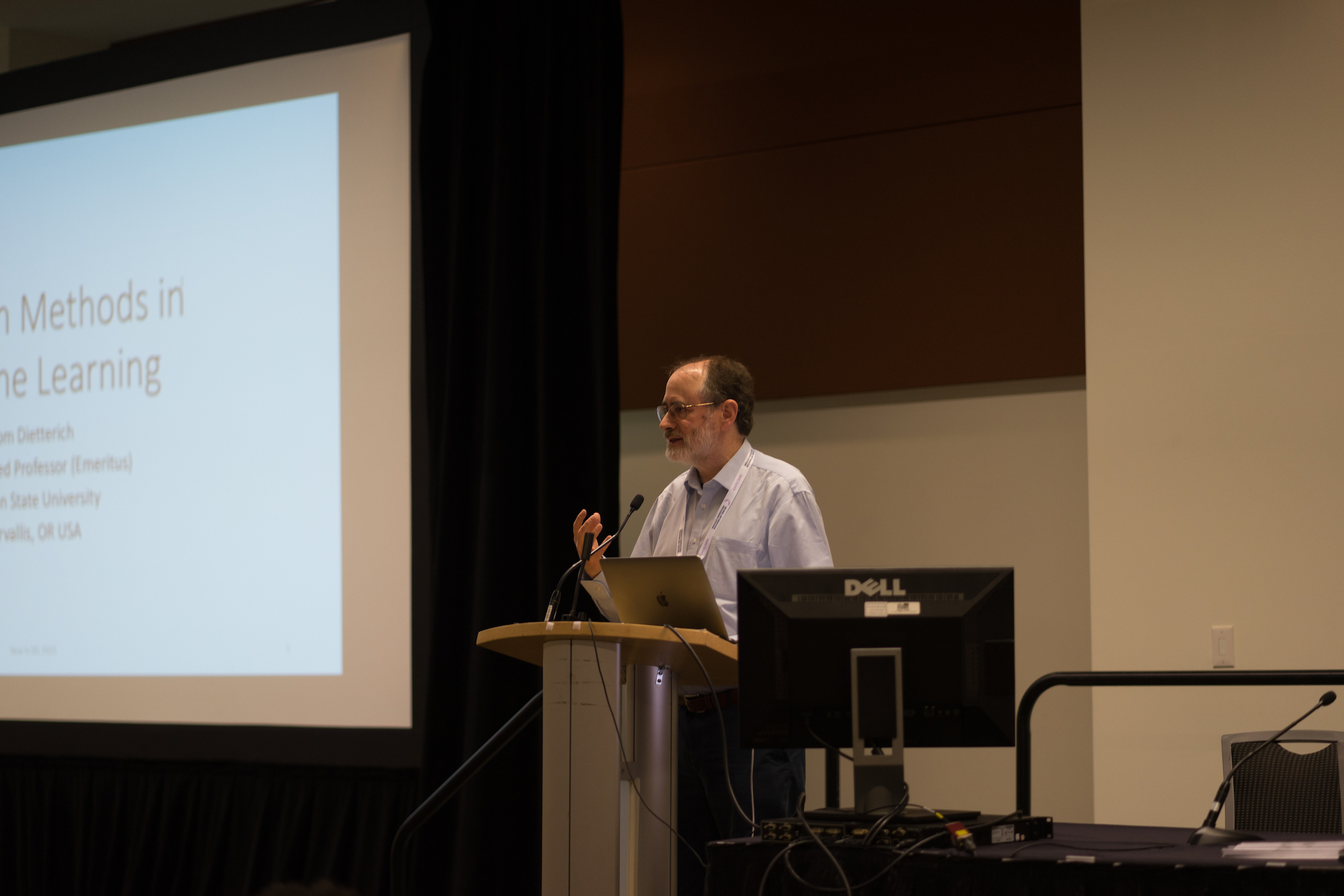
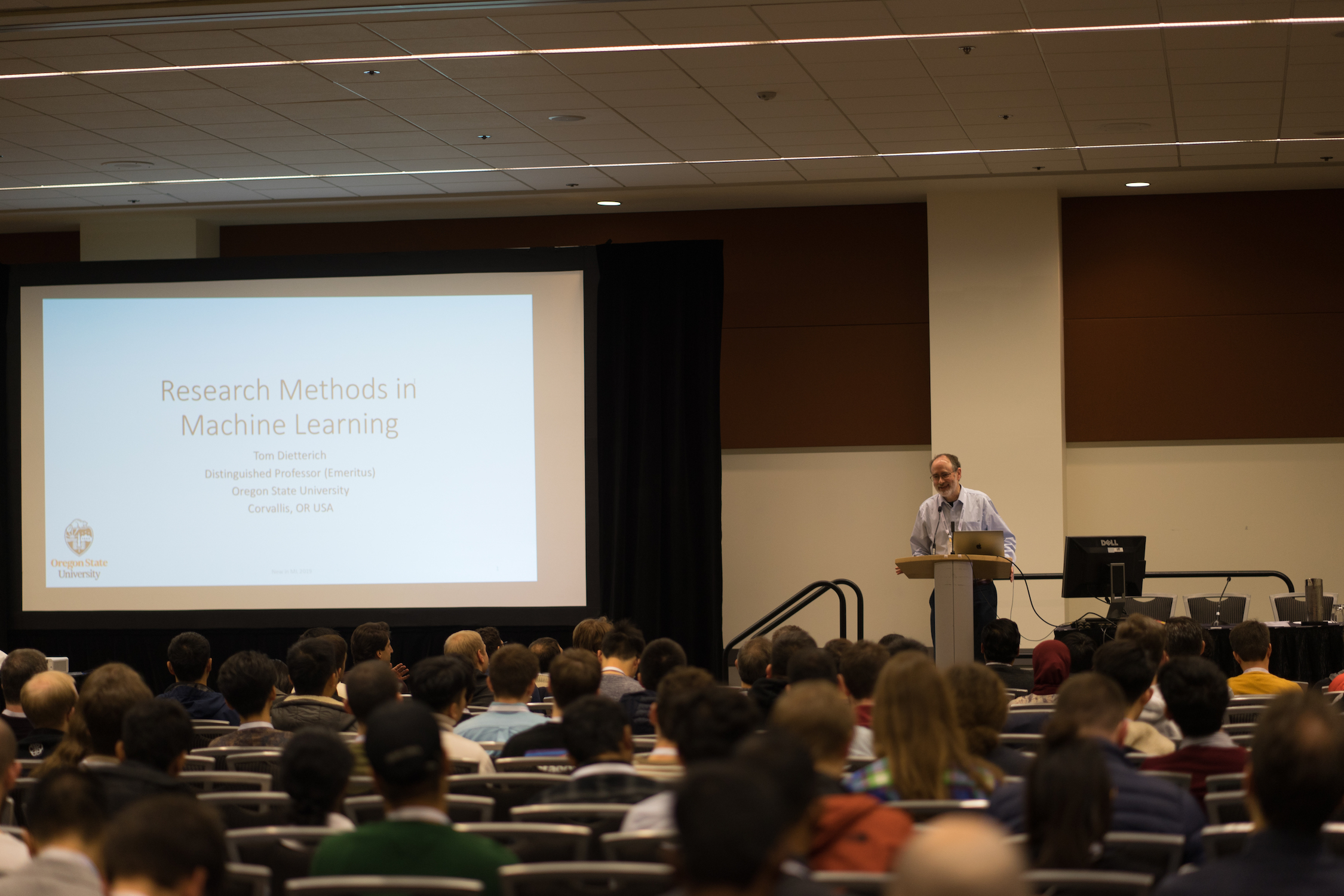
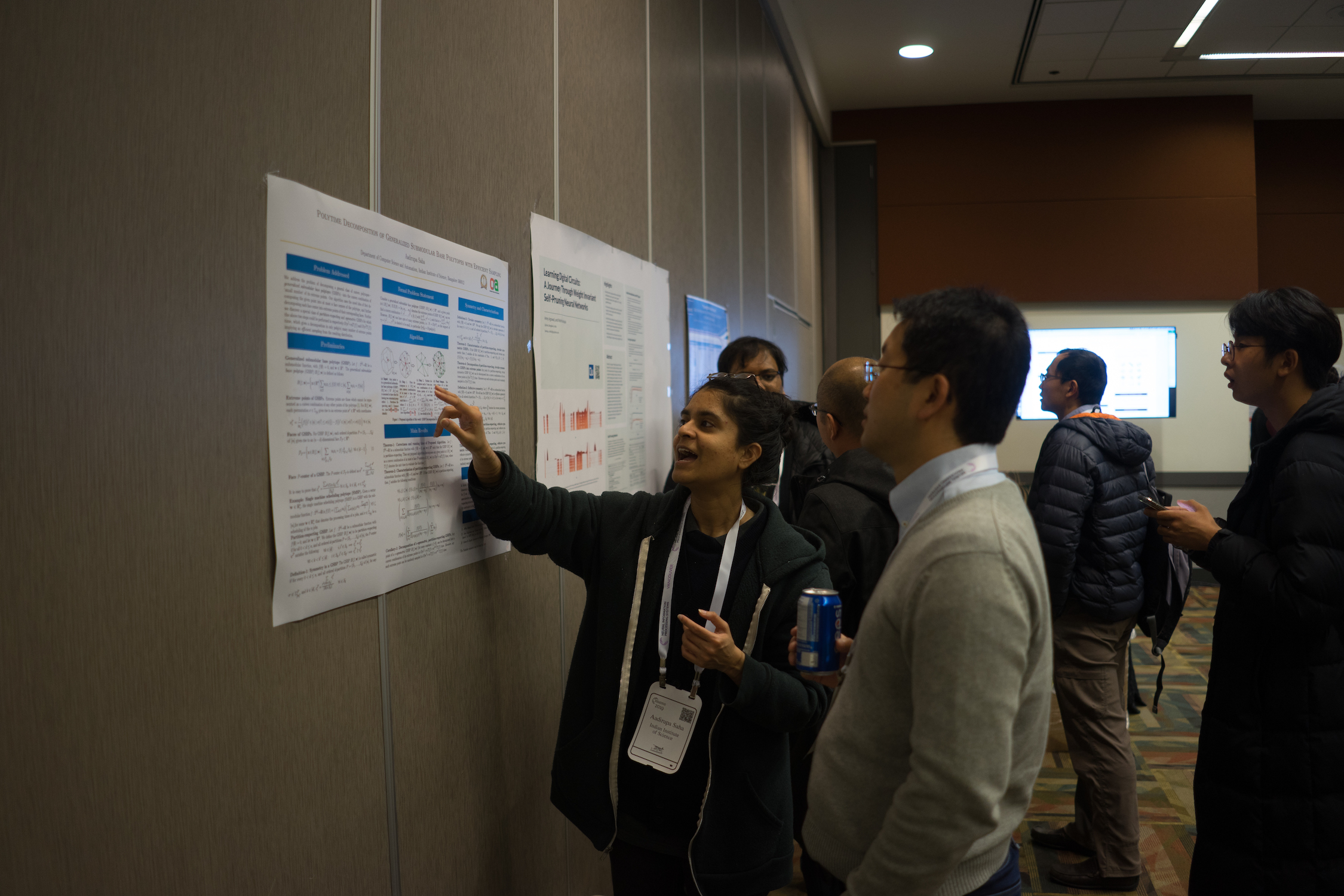
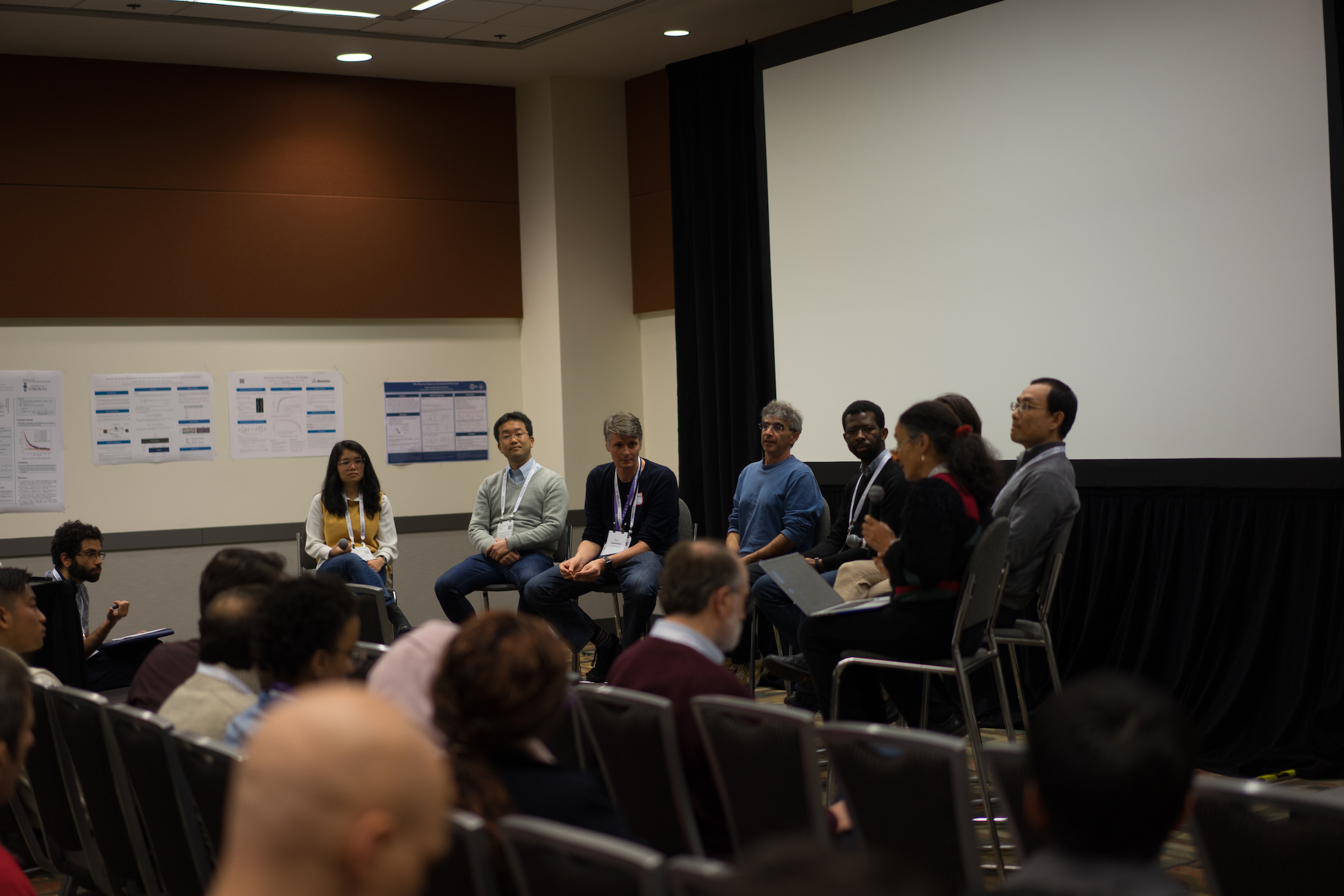
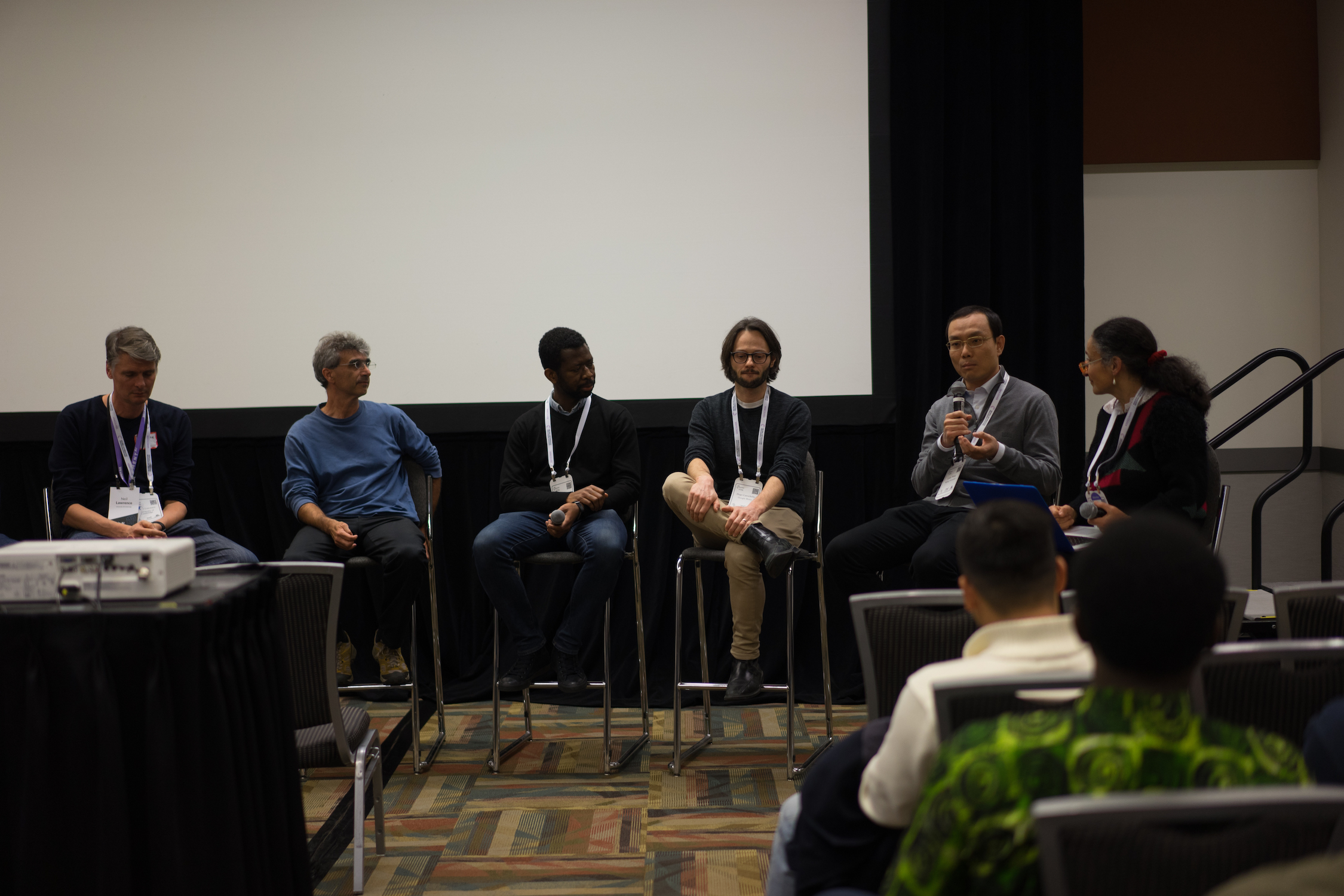
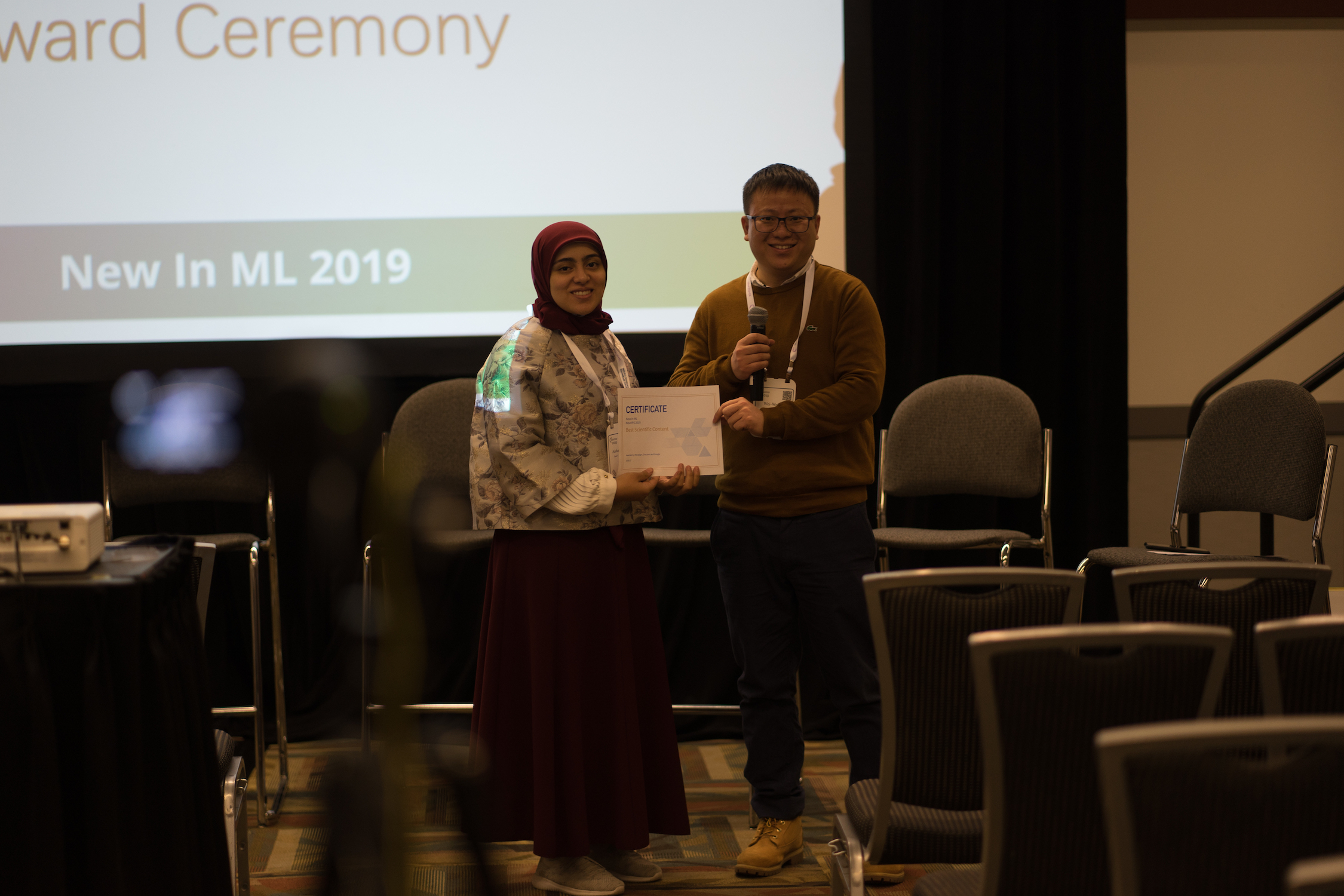
Mission
Is this your first time to a top conference? Have you ever wanted your own work recognized by this huge and active community? Do you encounter difficulties in polishing your ideas, experiments, paper writing, etc? Then, this session is exactly for you!
This year, we are organizing this special New in ML workshop, co-locating with NeurIPS 2019. We are targeting anyone who has not published a paper at the NeurIPS main conference yet. We invited top NeurIPS researchers to review your work and share with you their experience in poster sessions and mentoring sessions. The best papers will get oral presentations and even awards!
Our biggest goal is to help you publish papers at next year’s NeurIPS conference, and generally provide you with the guidance you need to contribute to ML research fully and effectively!
Call For Papers
Your ticket to NeurIPS 2020? Maybe!
Since this is an exercise in writing good NeurIPS papers, the authors are requested to submit papers respecting the NeurIPS format and instructions:https://nips.cc/Conferences/2019/CallForPapers.The page limit is 8 pages + extra references, but shorter papers with enough good contents are welcome.We restrict submissions to first authors with no prior accepted publication at NeurIPS (main conference) and which arenot under review or accepted elsewhere. Papers having been rejected before should be revised before submission to New In ML. We recommend sharing previous reviews with your new reviewers.
All topics related to machine learning are welcome. They include but not limited to:
- Adversarial Machine Learning
- Automated Machine Learning
- Bayesian Machine Learning
- Causal Inference
- Deep Learning Theory
- Deep Learning Interpretability
- Fairness and Differential Privacy
- Graph Neural Networks
- Meta Learning
- Reinforcement Learning
Paper submission is through CMT platform:https://cmt3.research.microsoft.com/NewInML2019
Accepted papers will be reviewed by expert NeurIPS reviewers and, if accepted, will get a talk or a poster at the workshop and expect coaching.This will NOT count as an official NeurIPS publication, so papers submitted can then be revised and submitted to NeurIPS 2020, but you should check the policy of other conferences if you want to re-submit elsewhere.
Best Paper Awards
- Most Disruptive Idea
- Best Scientific Contents
- Best Oral Presentation
Important Dates
- October 15th, 2019 (Anywhere on Earth): Paper submission deadline
- November 8th, 2019: Author notification deadline
- December 9th, 2019: Session day
Within quota limits, the authors of the best accepted papers will be receiving the possibility of registering to NeurIPS and will be able to apply for travel awards, to be attributed according to merit and need.
Program
This will be a whole day session. Tentative program:
| Time | Event |
|---|---|
| 07:00 - 09:00 | Mentoring breakfast |
| 09:00 - 09:15 | Opening address:Isabelle Guyon |
| 09:15 - 10:45 | Invited Talk:Thomas G. Dietterichslides |
| 10:45 - 11:00 | Break |
| 11:00 - 12:30 | Six contributed talks of 10 min + 5 min questionsslides |
| 12:30 - 14:00 | Lunch and poster session |
| 14:00 - 15:00 | Four contributed talks of 10 min + 5 min questionsslides |
| 15:00 - 16:00 |
Panel Discussion(alphabetical order): Samy Bengio, Chip Huyen, Hugo Larochelle, Neil Lawrence, Charles Onu, Masashi Sugiyama, Liwei Wang |
| 16:00 - 16:30 | Two contributed talks of 10 min + 5 min questionsslides |
| 16:30 - 16:45 | Award Ceremony, Closing remarks |
Mentors
- Nimar Arora(Facebook, USA)
- Paul Azunre(Algorine, USA)
- Philippe Beaudoin(Element AI, Canada)
- Yoshua Bengio(University of Montréal and MILA, Canada), former NeurIPS program chair and general chair, NeurIPS board advisor
- Benjamin Bloem-Reddy(University of British Columbia, Canada)
- Marc Brockschmidt(Microsoft Research, UK)
- Wei-Lun Harry Chao(Ohio State University, USA)
- Irene Chen(Massachusetts Institute of Technology, USA)
- Carlo Ciliberto(Imperial College London, UK)
- Corinna Cortes(Google Research, New York, USA), former NeurIPS program chair and general chair, NeurIPS board member
- Aditya Deshpande(University of Illinois at Urbana-Champaign, USA)
- Thomas G. Dietterich(Oregon State University, USA), former NeurIPS program chair and general chair, NeurIPS board advisor
- Tanner Fiez(University of Washington, USA)
- Nicholas Foti(University of Washington, USA)
- Andreea Gane(Google Research, USA)
- Roman Garnett(Washington University in St. Louis, USA)
- Adrià Garriga(University of Cambridge, UK)
- Tim Genewein(DeepMind, UK)
- Jack Goetz(Univerisity of Michigan, USA)
- Erin Grant(UC Berkeley, USA)
- Kohei Hayashi(Preferred Networks, Japan)
- Wei-Ning Hsu(MIT, USA)
- David Jensen(Univerisity of Massachusetts, USA)
- David Kale(Netflix, USA)
- Been Kim(Google Brain), NeurIPS area chair
- Antti Koskela(University of Helsinki, Finland)
- Aditya Kusupati(University of Washington, USA)
- James T. Kwok(Hong Kong University of Science and Technology, China), NeurIPS area chair
- Hugo Larochelle(Google Brain), program chair of NeurIPS
- Neil Lawrence(University of Cambridge, UK), former NeurIPS program chair and general chair, NeurIPS board member
- Honglak Lee(University of Michigan, USA), NeurIPS senior area chair
- Richard Lippman(MIT, USA)
- Lucas Maystre(Spotify, UK)
- Daniel Joseph McDonald(University of Indiana, USA)
- Nicholas Monath(University of Massachussetts, USA)
- Naila Murray(NAVER LABS, France)
- Ali Mousavi(Google AI, USA)
- Michael Mozer(University of Colorado, USA), NeurIPS foundation secretary
- Radford Neal(University of Toronto, Canada)
- Ehimwenma Nosakhare(MIT, USA)
- Dino Oglic(King’s College London, UK)
- Gottesman Omer(Harvard University, USA)
- Charles Onu(Mila, Canada)
- George Papamakarios(DeepMind, UK)
- Paavo Parmas(Okinawa Institute of Science and Technology, Japan)
- Qing Qu(NYU, USA)
- Marcello Restelli(Politecnico di Milano, Italy)
- Peter Richtarik(King Abdullah University of Science and Technology, Saudi Arabia)
- Bastian Rieck(ETH Zurich, Switzerland)
- Hippolyt Ritter(University College London, UK)
- David Rosenberg(Bloomberg LP, USA)
- David Ross(Google, USA)
- Negar Rostamzadeh(Mila, Canada)
- Tim G. J. Rudner(University of Oxford, UK)
- Francisco J. R. Ruiz(DeepMind, UK)
- Karhik Abinav Sankararaman(Facebook, USA)
- Suchi Saria(Johns Hopkins University, USA)
- Aaron Schein(Columbia University, USA)
- Xanda Schofield(Harvey Mudd College, USA)
- Terrence Sejnowski(The Salk Institute, USA), co-founder and president of the NeurIPS foundation
- Or Sharir(Hebrew University of Jerusalem, Israel)
- Rui Shu(Stanford, USA)
- Max Simchowitz(UC Berkeley, USA)
- Yale Song(Microsoft Research, Redmond, USA)
- Masashi Sugiyama(RIKEN and University of Tokyo, Japan), former NeurIPS program chair and general chair, NeurIPS board member
- Yifan Sun(INRIA, France)
- Yi Tay(Google, USA)
- Florian Tramer(Stanford University, USA)
- Jonathan Uesato(MIT AI labs, USA)
- Arash Vahdat(NVIDIA, USA)
- Sergio Valcarcel Macua(PROWLER, UK)
- Gertjan Van den Burg(Alan Turing Inst. UK)
- Mark van der Wilk(PROWLER.io, UK)
- Fabio Viola(DeepMind, UK)
- Svitlana Volkova(Johns Hopkins University, USA)
- Liwei Wang(Peking University, China), NeurIPS area chair
- Yair Weiss(Hebrew University, Israel), former NeurIPS program chair and general chair, NeurIPS board advisor
- Max Welling(University of Amsterdam, The Netherlands), NeurIPS board member
- Grigory Yaroslavtsev(Indiana University Bloomington, USA)
- Junzi Zhang(Stanford University, USA)
- Tong Zhang(Hong Kong University of Science and Technology, China), NeurIPS area chair
Reviewers
- Jacob Andreas(UC Berkeley, USA)
- Nimar Arora(Facebook, USA)
- Paul Azunre(Algorine, USA)
- Yoshua Bengio(University of Montréal and Mila, Canada), former NeurIPS program chair and general chair, NeurIPS board advisor
- Benjamin Bloem-Reddy(University of British Columbia, Canada)
- Marc Brockschmidt(Microsoft Research, UK)
- Wei-Lun Harry Chao(Ohio State University, USA)
- Irene Chen(Massachusetts Institute of Technology, USA)
- Carlo Ciliberto(Imperial College London, UK)
- Aditya Deshpande(University of Illinois at Urbana-Champaign, USA)
- Thomas G. Dietterich(Oregon State University, USA), former NeurIPS program chair and general chair, NeurIPS board advisor
- Sebastian Farquhar(Oxford, UK)
- Tanner Fiez(University of Washington, USA)
- Vincent François-Lavet(Mila/McGill University, Canada)
- Jie Fu(Mila, Canada)
- Angus Galloway(University of Guelph, Canada)
- Andreea Gane(Google Research, USA)
- Roman Garnett(Washington University in St. Louis, USA)
- Adrià Garriga(University of Cambridge, UK)
- Tim Genewein(DeepMind, UK)
- Gauthier Gidel(Université de Montréal, Canada)
- Erin Grant(UC Berkeley, USA)
- Jack Goetz(Univerisity of Michigan, USA)
- Kohei Hayashi(Preferred Networks, Japan)
- Wei-Ning Hsu(MIT, USA)
- David Jensen(Univerisity of Massachusetts, USA)
- David Kale(Netflix, USA)
- Antti Koskela(University of Helsinki, Finland)
- Aditya Kusupati(University of Washington, USA)
- Neil Lawrence(University of Cambridge, UK), former NeurIPS program chair and general chair, NeurIPS board member
- Richard Lippman(MIT, USA)
- Daniel Joseph McDonald(University of Indiana, USA)
- Lucas Maystre(Spotify, UK)
- Nicholas Monath(University of Massachussetts, USA)
- Naila Murray(NAVER LABS, France)
- Ali Mousavi(Google AI, USA)
- Michael Mozer(University of Colorado, USA), NeurIPS foundation secretary
- Radford Neal(University of Toronto, Canada)
- Ehimwenma Nosakhare(MIT, USA)
- Dino Oglic(King’s College London, UK)
- Gottesman Omer(Harvard University, USA)
- George Papamakarios(DeepMind, UK)
- Paavo Parmas(Okinawa Institute of Science and Technology, Japan)
- Michael Pfeiffer(Bosch Center for Artificial Intelligence, Germany)
- Qing Qu(NYU, USA)
- Ievgen Redko(Univerisity of St Etienne, France)
- Marcello Restelli(Politecnico di Milano, Italy)
- Peter Richtarik(King Abdullah University of Science and Technology, Saudi Arabia)
- Bastian Rieck(ETH Zurich, Switzerland)
- Hippolyt Ritter(University College London, UK)
- David Rosenberg(Bloomberg LP, USA)
- David Ross(Google, USA)
- Tim G. J. Rudner(University of Oxford, UK)
- Francisco J. R. Ruiz(DeepMind, UK)
- Karhik Abinav Sankararaman(Facebook, USA)
- Suchi Saria(Johns Hopkins University, USA)
- Aaron Schein(Columbia University, USA)
- Xanda Schofield(Harvey Mudd College, USA)
- Terrence Sejnowski(The Salk Institute, USA), co-founder and president of the NeurIPS foundation
- Or Sharir(Hebrew University of Jerusalem, Israel)
- Rui Shu(Stanford, USA)
- Max Simchowitz(UC Berkeley, USA)
- Yale Song(Microsoft Research, Redmond, USA)
- Masashi Sugiyama(RIKEN and University of Tokyo, Japan), former NeurIPS program chair and general chair, NeurIPS board member
- Yifan Sun(INRIA, France)
- Yi Tay(Google, USA)
- Florian Tramer(Stanford University, USA)
- Ivor Tsang(University of Technology Sydney, Australia), NeurIPS area chair
- Jonathan Uesato(MIT AI labs, USA)
- Arash Vahdat(NVIDIA, USA)
- Sergio Valcarcel Macua(PROWLER, UK)
- Gertjan Van den Burg(Alan Turing Inst. UK)
- Mark van der Wilk(PROWLER.io, UK)
- Sharan Vaswani(Mila, Canada)
- Fabio Viola(DeepMind, UK)
- Svitlana Volkova(Johns Hopkins University, USA)
- Liwei Wang(Peking University, China), NeurIPS area chair
- Yair Weiss(Hebrew University, Israel), former NeurIPS program chair and general chair, NeurIPS board advisor
- Grigory Yaroslavtsev(Indiana University Bloomington, USA)
- Junzi Zhang(Stanford University, USA)
- Tong Zhang(Hong Kong University of Science and Technology, China), NeurIPS area chair
Organizers
- Zhen Xu (Ecole Polytechnique/4Paradigmxuzhen@4paradigm.com)
- Zhengying Liu (U. PSud/INRIA, Université Paris-Saclay)
- Sparkle Russell (Genentech/Roche Pharmaceuticals)
- Xiawei Guo (4Paradigm)
Advisors
- Isabelle Guyon (U. PSud/INRIA, Université Paris-Saclay and ChaLearn)
- Samy Bengio (Google Brain, USA)
- Wei-Wei Tu (4Paradigm, ChaLearn)
Sponsors
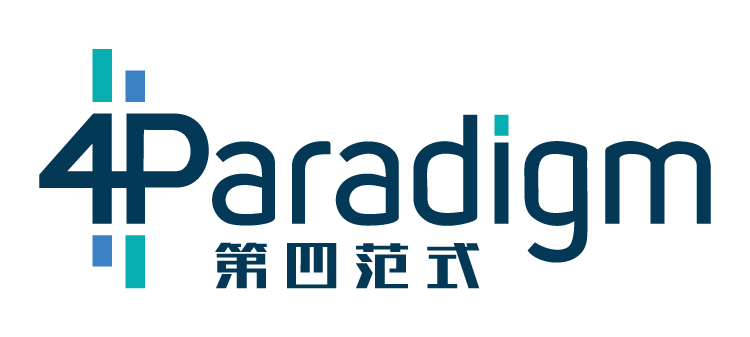

Oral papers
- Learning to learn for Neural Architecture Search, Jorge Gomez Robles
- Edge Contraction Pooling for Graph Neural Networks, Frederik Diehl
- von Neumann-Morgenstern and Savage Theorems for Causal Decision Making, Mauricio Gonzalez-Soto
- AttaCut: A Fast and Accurate Neural Thai Word Segmenter, Pattarawat Chormai, Ponrawee Prasertsom, Attapol Rutherford
- Explaining with Impact: A Machine-centric Strategy to Quantify the Performance of Explainability Algorithms, Zhong Qiu Lin, Mohammad Javad Shafiee, Stanislav Bochkarev, Michael St Jules, Xiao Yu Wang, Alexander Wong
- Semi-Supervised Ordinal Regression Based on Empirical Risk Minimization, Taira Tsuchiya, Nontawat Charoenphakdee, Issei Sato, Masashi Sugiyama
- Augmenting learning using symmetry in a biologically-inspired domain, Shruti Mishra, Abbas Abdolmaleki, Arthur Guez, Piotr Trochim, Doina Precup
- Statistical Learning and Scalability of Additive Models with Total Variation Regularization, Shin Matsushima
- Popularity Agnostic Evaluation of Knowledge Graph Embeddings, Aisha Mohamed, Shameem Parambath, Zoi Kaoudi, Ashraf Aboulnaga
- A Corpus of Biology Analogy Questions as a Challenge for Explainable AI, Han Lin Aung, Justin Xu, Sajana Weerawardhena, Vinay Chaudhri
- OpenGPT-2: Replicating a 1.5 Billion Parameter Language Model, Vanya Cohen, Stefanie Tellex, Ellie Pavlick, Aaron Gokaslan
- Sensitivity Analysis of Deep Reinforcement Learning for Septic Treatment, Ming Yu Lu



